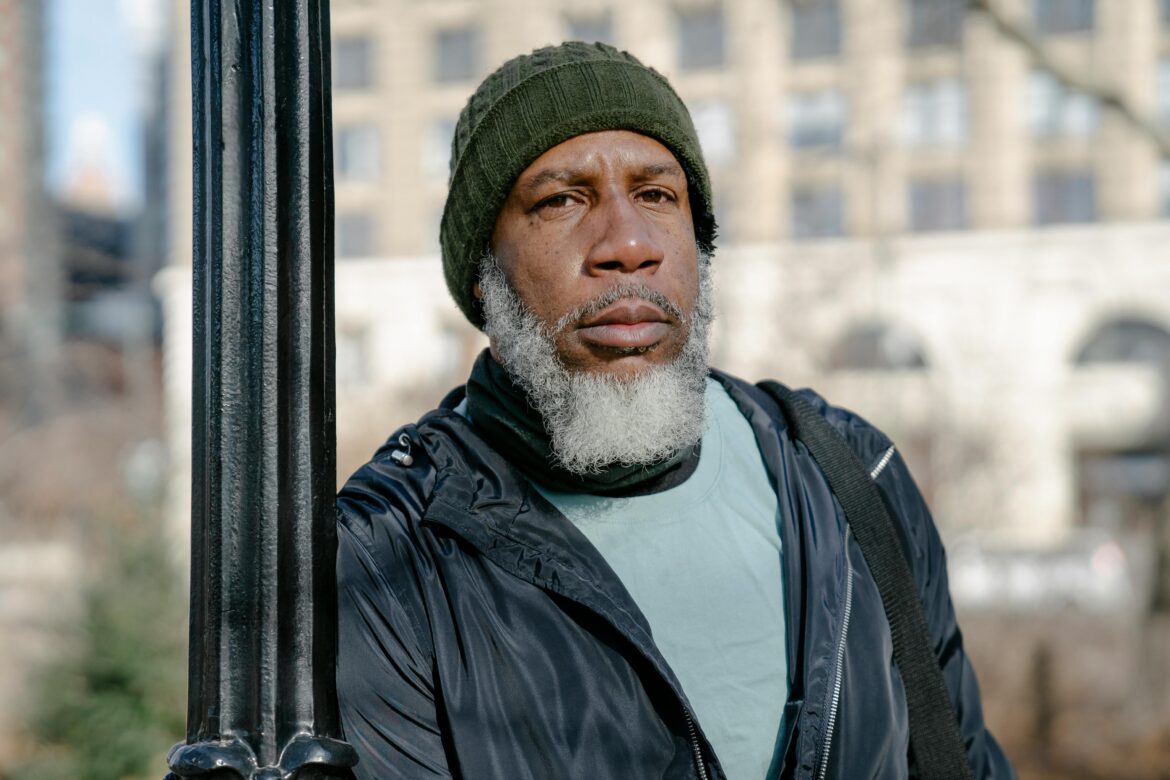In a world where we’re more connected than ever—pinging notifications, social media feeds abuzz, and virtual chats at our fingertips—many find themselves feeling profoundly isolated. The phenomenon of being “alone in a crowded room” encapsulates the paradox of modern existence: surrounded by people yet wrestling with an overwhelming sense of loneliness. For contemporary society, the struggle is often unspoken, buried beneath layers of digital interactions and societal expectations. As we navigate through bustling streets and packed gatherings, the invisible barrier of emotional detachment can weigh heavily on our souls.
Understanding Loneliness: A Silent Epidemic
Loneliness is a profound emotional experience characterized by feelings of isolation and disconnection, regardless of one’s physical surroundings. It’s more than just being alone; it’s a painful awareness that our social needs are unmet, often leading to a deep sense of longing for companionship or connection. In our fast-paced, hyper-connected world, this feeling can strike unexpectedly, leaving individuals adrift even in the midst of lively gatherings. The irony is striking: surrounded by friends, family, and technology, many still find themselves battling feelings of loneliness, yearning for authentic connections that go beyond superficial interactions.
The Science of Loneliness: Why It Hurts
From a scientific standpoint, loneliness triggers complex emotional and physiological responses that can have serious implications for overall well-being. Research reveals that the brain processes loneliness as a threat, activating the same neural mechanisms linked to physical pain. This explains why emotional isolation can feel so excruciating; it’s a reflection of our fundamental need for social connection.
Studies have shown that chronic loneliness is associated with increased levels of cortisol, the stress hormone, which can lead to a multitude of health issues such as depression, anxiety, and even cardiovascular problems. Understanding the science behind loneliness not only underscores its significance but also highlights the urgent need for fostering genuine connections in a world that often prioritizes quantity over quality in relationships.

Modern life presents a unique cocktail of stimuli that can both connect and isolate us. The incessant barrage of technology leads to a superficial sense of community—think likes and shares that substitute genuine connection. Research indicates that high social media usage can actually correlate with increased feelings of loneliness and depression.
When we curate our lives in carefully crafted digital snippets, we may end up comparing our reality to the highlight reels of others, exacerbating feelings of inadequacy and isolation. These virtual interactions, while seemingly integral to everyday life, can leave individuals feeling emotionally adrift, longing for deeper, more meaningful connections that often elude them amidst the digital noise.
From a psychological perspective, loneliness is more than just a fleeting emotion; it can have serious ramifications for our mental and physical health. Studies reveal that prolonged feelings of loneliness can lead to a variety of health issues, including cardiovascular problems, weakened immune responses, and increased risk of mortality. In fact, research has shown that the health risks associated with chronic loneliness may surpass those posed by obesity or smoking. Yet, in the face of such dire consequences, conversations around loneliness and emotional isolation remain stigmatized, often feared or ignored.
To combat this modern malaise, awareness is key. Recognizing the signs of loneliness can empower individuals to seek connection and support. Simple strategies such as engaging in face-to-face conversations—whether it’s a casual coffee chat with a friend or striking up a conversation with a neighbor—can foster authentic connections that digital interactions often lack. Mindfulness practices, like meditation or journaling, can also facilitate deeper self-reflection, helping people navigate their feelings and enhance their awareness of those around them.
In recognizing the unspoken struggle of being alone in a crowded room, we must foster environments where individuals feel safe discussing their feelings and experiences. Communities can play a pivotal role in this dialogue, creating support networks that emphasize both connection and vulnerability. Organizations and mental health advocates are championing initiatives aimed at reducing stigma associated with loneliness and promoting open conversations about emotional well-being.
Ultimately, while the struggle for connection amidst a sea of faces is a challenge of modern man, it is also an opportunity for growth. By choosing to acknowledge our loneliness, we can brave the uncomfortable spaces and reach out for authentic connections. The journey may be fraught with challenges, but in candid conversations, shared experiences, and honest admissions, we can transform our emotional landscapes and reclaim our sense of belonging, ensuring that no one has to face their solitude in silence.

A Modern Man’s Guide to Overcoming Loneliness
In an age where connectivity is at an all-time high, loneliness has paradoxically become a pervasive issue for many. The experience of feeling isolated in a bustling environment can be especially poignant for men who often face societal pressures to be stoic and self-reliant. However, it is possible to navigate these feelings and cultivate a sense of belonging and fulfillment even in a crowded room. Below, we explore practical strategies to help modern men combat loneliness and rediscover a sense of self.
Before diving into solutions, it’s vital to understand why loneliness occurs, particularly in social settings. Loneliness is not merely a physical state; it’s an emotional one. It can stem from:
- Lack of Authentic Connections: Many men may find themselves surrounded by acquaintances but lack deep, meaningful relationships.
- Societal Expectations: Men often carry the weight of societal norms that equate vulnerability with weakness, making it difficult to openly express feelings of loneliness.
- Overstimulation: In crowded environments, the sheer volume of interactions can lead to sensory overload, making it challenging to form genuine connections.
- Perception of Self: Negative self-perception can hinder engagement with others, leading to a cycle of isolation.
Practical Strategies for Overcoming Loneliness
- Embrace Vulnerability: It’s essential to break the stigma surrounding emotional openness. Sharing thoughts or feelings with someone can be a powerful step in creating meaningful bonds. Initiate conversations by asking open-ended questions or sharing personal anecdotes—this invites others to engage on a deeper level.
- Practice Active Listening: Shift focus from your feelings of isolation to genuinely listening to those around you. This not only helps you connect with others but also fosters a sense of belonging. Active listening involves maintaining eye contact, nodding, and providing feedback, which encourages a more authentic exchange of ideas.
3.Seek Common Interests: Network with individuals who share your passions or interests. Whether in a professional setting or a social gathering, finding common ground can lead to more engaging conversations. Join clubs, attend workshops, or participate in community events that align with your hobbies—this naturally attracts like-minded individuals.
4.Engage Mindfully: Rather than being overwhelmed by the multitude of people around you, practice mindfulness to center yourself. Take a moment to breathe deeply, observe your surroundings, and appreciate each interaction. This approach reduces anxiety and enhances your presence in the moment.
- Set Intentions: Before entering a crowded room, set an intention for what you wish to achieve—whether it’s meeting new people, networking, or simply enjoying the atmosphere. Having a clear purpose can guide your interactions and provide a sense of direction amid the chaos.
- Build Confidence: Work on boosting your self-esteem through small, achievable goals. This could involve initiating conversations, sharing more about yourself, or offering compliments. Confidence is magnetic and can help you stand out in crowded settings, making it easier to connect with others.
- Create a Support Network: Building relationships with those outside your immediate environment is crucial. This can be done through online platforms or community groups where you can meet others with shared interests. Consider finding a mentor or joining support groups that foster understanding and shared experiences.
- Seek Professional Help: If feelings of loneliness persist, consider engaging with a therapist or counselor. Professional guidance can provide insights into underlying issues and equip you with coping strategies tailored to your individual needs.
Overcoming loneliness in a crowded room requires both self-reflection and proactive engagement. By embracing vulnerability, practicing active listening, and setting intentions, modern men can foster deeper connections even in bustling environments. Remember that you are not alone in your experiences; many navigate similar feelings daily. By seeking authentic relationships and forming a supportive network, you can find yourself amidst the noise and forge a meaningful life enriched with connection and purpose. In a world that often feels isolating, it’s important to recognize that the path to connection often begins with a single step of openness.
Words of wisdom from Masvingo
In a world pulsating with the energy of countless connections, the modern man often grapples with an unspoken struggle: the feeling of profound loneliness amidst the vibrant chaos of social interaction. Remember, being alone in a crowded room is not a reflection of your worth but an invitation to delve deeper into the self. Embrace the quiet moments, for they are fertile ground for introspection and growth. Seek authenticity over popularity, and foster connections that nourish your spirit. In the shadows of isolation, you may uncover the strength to reach out, share your thoughts, and discover that vulnerability is not a weakness but a powerful bridge to meaningful human connection.


